A mobile operating system (OS) is software that allows smartphones, tablet PCs and other devices to run applications and programs.A mobile OS typically starts up when a device powers on, presenting a screen with icons or tiles that present information and provide application access. Mobile operating systems also manage cellular and wireless network connectivity, as well as phone access. Examples of mobile device operating systems include Apple iOS, Google Android, Research in Motion’s BlackBerry OS, Nokia’s Symbian, Hewlett-Packard’s webOS (formerly Palm OS) and Microsoft’s Windows Phone OS. Some, such as Microsoft’s Windows 8, function as both a traditional desktop OS and a mobile operating system.Most mobile operating systems are tied to specific hardware, with little flexibility. Users can jailbreak or root some devices, however, which allows them to install another mobile OS or unlock restricted applications.
A mobile operating system (OS) is software that allows smartphones, tablet PCs and other devices to run applications and programs.A mobile OS typically starts up when a device powers on, presenting a screen with icons or tiles that present information and provide application access. Mobile operating systems also manage cellular and wireless network connectivity, as well as phone access. Examples of mobile device operating systems include Apple iOS, Google Android, Research in Motion’s BlackBerry OS, Nokia’s Symbian, Hewlett-Packard’s webOS (formerly Palm OS) and Microsoft’s Windows Phone OS. Some, such as Microsoft’s Windows 8, function as both a traditional desktop OS and a mobile operating system.Most mobile operating systems are tied to specific hardware, with little flexibility. Users can jailbreak or root some devices, however, which allows them to install another mobile OS or unlock restricted applications.
What is a mobile phone operating system?
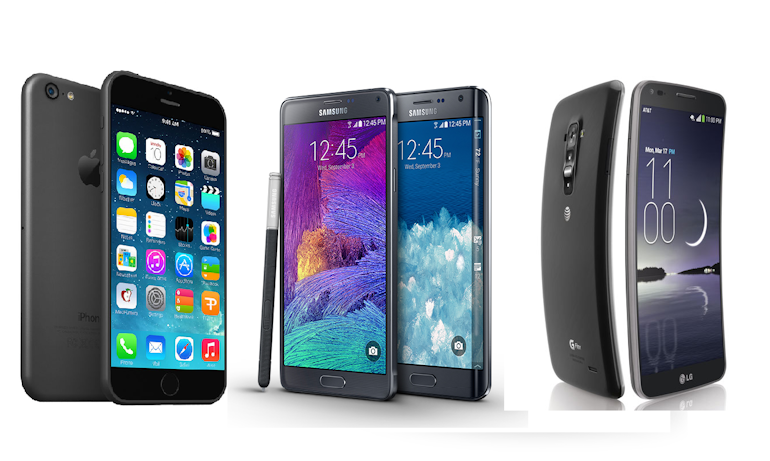
Gone are the days when mobile phones were just a device to make phone calls and send occasional texts.
Modern smartphones are closer to handheld computers that enable us to send emails, play games, watch the news and make video calls to loved ones. And much more besides.
Operating systems, also known as mobile OS, are the software that run our desktop computers and laptops and manage their resources and memory when they're being used for multi-tasking.
But for some time now, smartphones have used operating systems too and it's this development that has brought advanced functions to mobiles that were previously only available on our computers.
It is also a platform so developers can create applications or 'apps' (software programs developed for smartphones that can carry out specific functions).
There are hundreds of thousands of apps available and they are constantly being developed - each with their own purpose.
For instance, you may download a weather app that tells you the current temperature or chances of rain in your city, a news app or widget that sends the latest headlines straight to your device's homescreen, or a game to simply pass the time.
There are a few examples of mobile device operating systems that include Apple iOS, Google Android, and Microsoft's Windows Phone OS.
How do I know what operating system my mobile phone has?
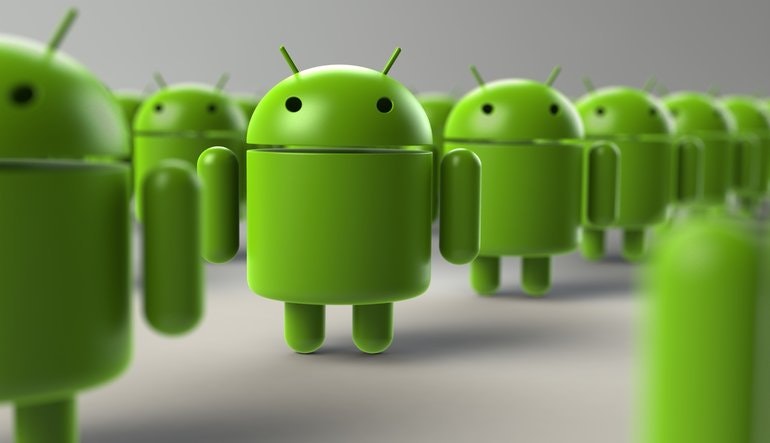
Because smartphone operating systems are so integrated with the look, feel and function of a mobile phone, many people base their choice of device around which operating system it uses.
If you have already bought your smartphone, the name and version of its software should be detailed in the settings menu.
However, if you are buying a new phone, the operating system can be found the handset's specifications information.
What different kinds of smartphone operating systems are there?
Some mobile operating systems are open source software, which means there are no restrictions on what you can download on it, or who can develop its software (there are often a 'community' of developers).
Open-source operating systems are entirely customisable, whilst others are restricted in the types of software permitted to run on the device.
Here's a mobile operating systems list:
iOS
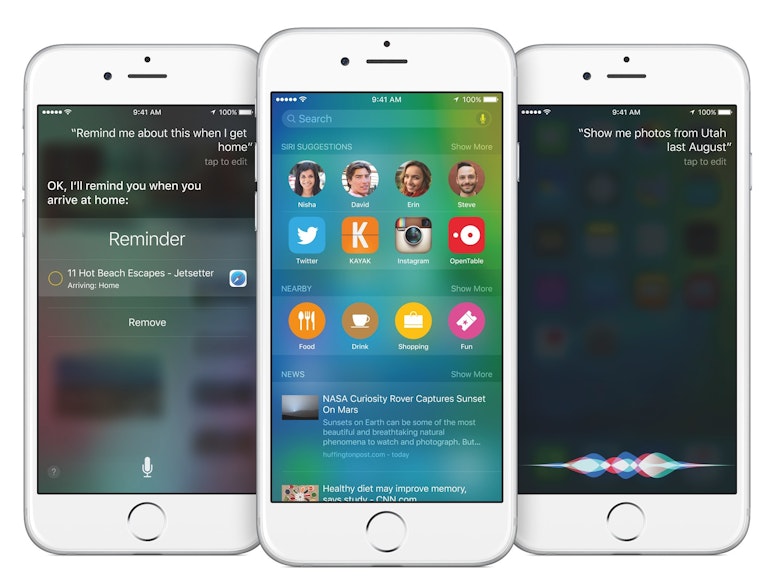
The Apple iOS multi-touch, multi-tasking operating system is what runs the Apple's iPhone, iPad, and iPod. A special version of the software is what powers the Apple Watch too.
iOS responds to the user's touch - allowing you to tap on the screen to open a program, pinch your fingers together to minimise or enlarge an image, or swipe your finger across the screen to change pages.
The Apple iOS is not allowed to be used in third party systems, so you will only be able to use it on products made by Apple. It comes with the Safari web browser for internet use, an iPod application for playing music and Apple's Mail for managing your emails.
You can download millions of applications currently available on the App Store directly to any device running iOS, be it an iPhone or an iPad. These encompass everything from recipe books to guitar tuitorials to games.
Compare iPhone deals and find out more about iOS here: iPhone deals
Windows Phone
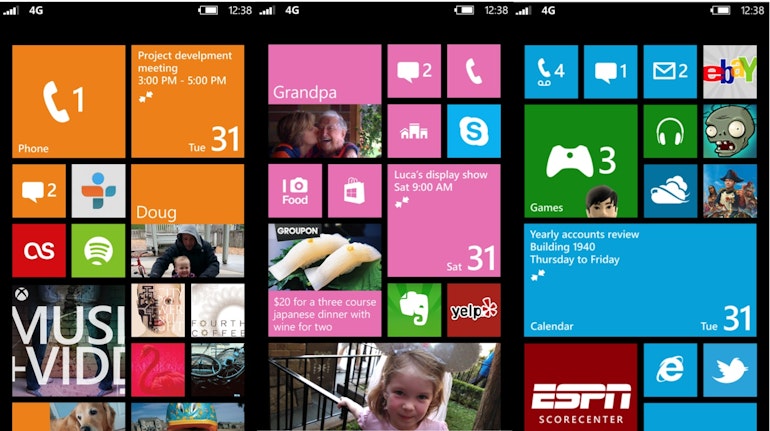 Microsoft released a hugely revamped version of its Windows platform for mobiles in late 2010, after its software fell behind iOS and Android.Redesigned and rebuilt from the ground up with a greater emphasis on the user experience, the result was an operating system called Windows Phone.Window Phone is recognisable from its tile-based interface - dubbed Metro - which features removable and interchangeable squares sections on the home screen, each with its own purpose and function.It also has aggregators called 'hubs', that group together all photos from all applications, or all music into one library, meaning your Facebook photos can be found with your camera photos and your documents from different sources grouped together in one, easy to access location.Windows Phone comes with a mobile-optimised version of the Internet Explorer for accessing the web, and Exchange, which supports secure corporate e-mail accounts with push support.
Microsoft released a hugely revamped version of its Windows platform for mobiles in late 2010, after its software fell behind iOS and Android.Redesigned and rebuilt from the ground up with a greater emphasis on the user experience, the result was an operating system called Windows Phone.Window Phone is recognisable from its tile-based interface - dubbed Metro - which features removable and interchangeable squares sections on the home screen, each with its own purpose and function.It also has aggregators called 'hubs', that group together all photos from all applications, or all music into one library, meaning your Facebook photos can be found with your camera photos and your documents from different sources grouped together in one, easy to access location.Windows Phone comes with a mobile-optimised version of the Internet Explorer for accessing the web, and Exchange, which supports secure corporate e-mail accounts with push support.

Android
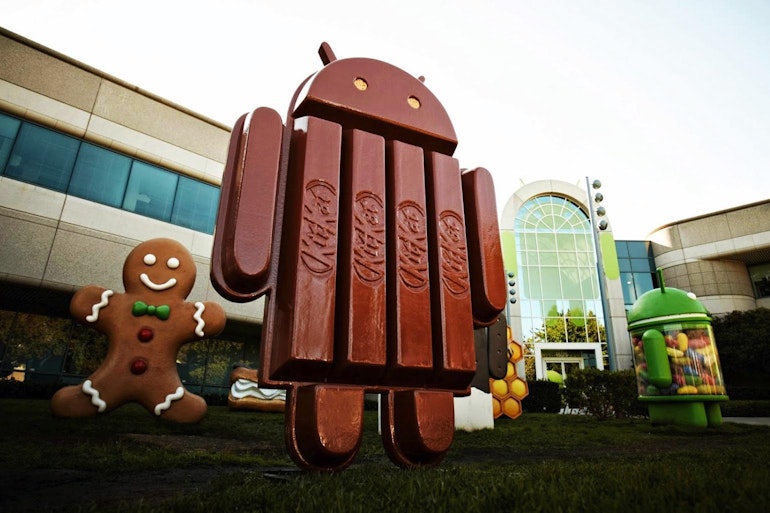
Android OS is owned by Google and powered by the Linux kernel, which can be found on a wide range of devices.
Android is an open source operating system which allows developers to access unlocked hardware and develop new programs as they wish.
This means unlimited access to any anyone who wants to develop apps for the phone and places very little restriction on its licensing, so users benefit from masses of free content.
Android is currently the dominant smartphone platform due to its tremendous traction with a wide spectrum of users.
Some of the best features of Android include the ability to customise multiple homescreens with useful widgets and apps that give you quicker, easier access to the content and functions you most care about.
It also has an excellent capacity for multitasking - with the ability to close programs by simply swiping them away.
Last but not least, the Android Market, which is the Android equivalent of the Apple App Store is home to millions of apps, many of which are completely free.











0 comments:
Post a Comment